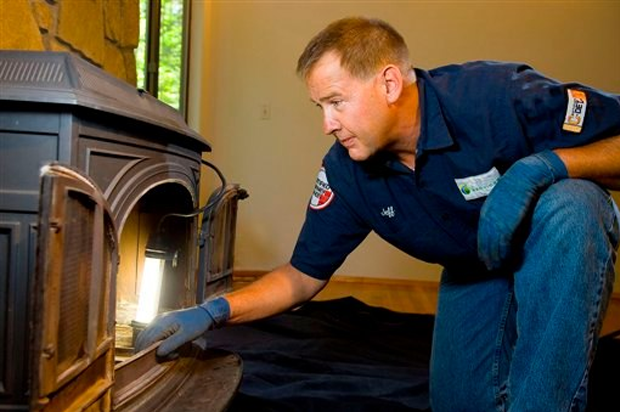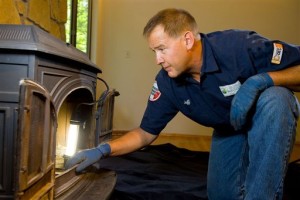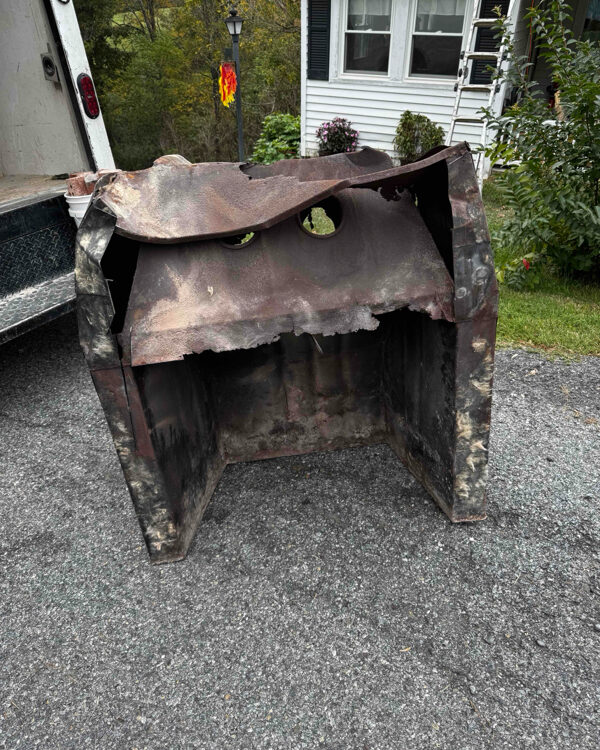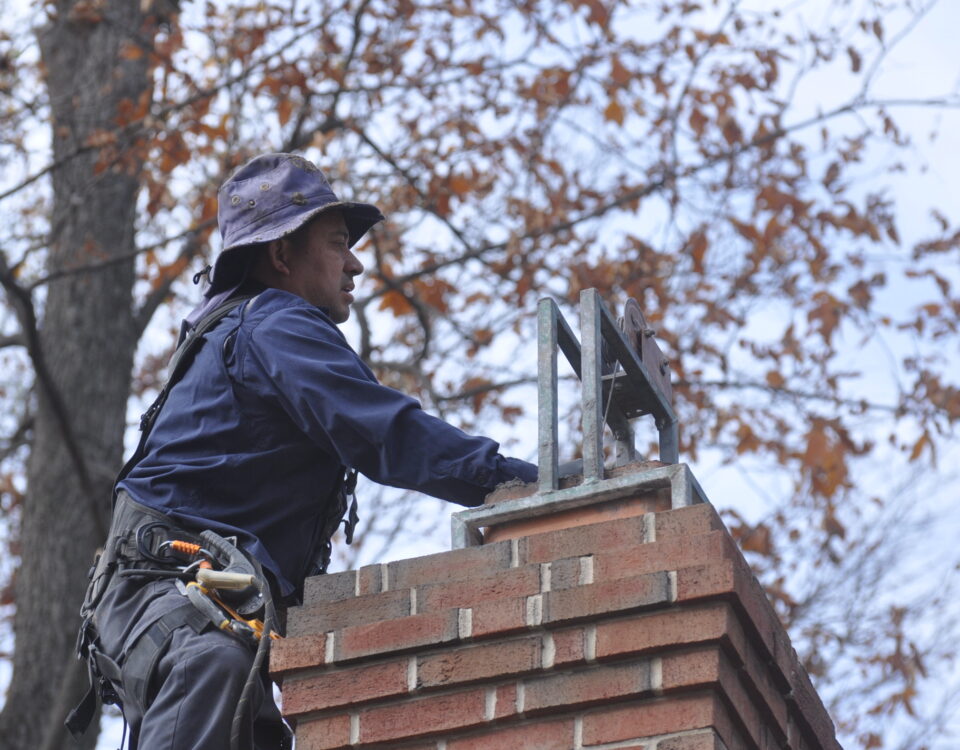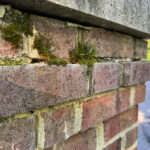
Why Plants Growing in Your Chimney is a Problem
November 21, 2024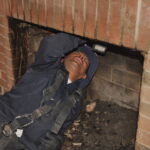
Why Smoke Comes In From Your Fireplace
November 29, 2024Why Does My Chimney Smell? Common Causes and Simple Fixes
Have you noticed an odd smell coming from your chimney? Whether it’s a faint musty odor or a strong, unpleasant stench, a smelly chimney can be annoying and might even mean there’s a problem. Let’s go over some common reasons why chimneys smell and what you can do to fix it.
1. Creosote Buildup
When you burn wood, it leaves behind a sticky, black substance called creosote. Over time, this builds up inside your chimney and creates a strong, tar-like smell, especially in damp weather. Creosote doesn’t just smell bad—it’s also a fire hazard.
How to Fix It: Have your chimney cleaned by a professional. Regular cleanings will keep your chimney safe and smell-free.
2. Water and Moisture
Rain or moisture can get into your chimney through cracks, an open flue, or a damaged crown. Water makes your chimney smell musty and can also lead to bigger problems like mold or structural damage.
How to Fix It: Install a chimney cap or repair any damage to keep water out. Waterproofing your chimney can also help protect it from moisture.
3. Animals in Your Chimney
Birds, squirrels, raccoons, or other animals can sneak into your chimney, leaving behind droppings, nests, or even getting trapped. This can cause bad smells that stick around.
How to Fix It: Call a professional to remove the animals and clean your chimney. Installing a chimney cap with a screen will keep critters out.
4. Air Pressure Problems
Sometimes, the airflow in your home can pull air down your chimney instead of letting it escape. This can bring chimney smells into your house. This is common in homes with tight insulation or poor ventilation.
How to Fix It: Improve airflow by opening windows or turning on exhaust fans. A chimney cap designed to improve airflow can also help.
5. Mold or Mildew
If water gets into your chimney and doesn’t dry out, it can lead to mold or mildew. This creates a damp, sour smell and might even cause health problems if left untreated.
How to Fix It: Fix any leaks and have the chimney professionally cleaned. A waterproofing treatment can help stop mold from coming back.
6. Soot and Ash
Even if you don’t use your chimney often, leftover soot and ash can cause a smoky smell, especially in warm weather.
How to Fix It: Clean out the firebox regularly and schedule a chimney cleaning at least once a year.
7. Leaves and Debris
Leaves and other debris can blow into your chimney, especially in the fall. Over time, they can rot and cause a bad odor.
How to Fix It: A chimney cap will keep out leaves and debris. Regular inspections will help catch any problems before they start to smell.
How to Keep Your Chimney Smelling Fresh
- Get Regular Inspections: A yearly checkup can find problems before they get worse.
- Burn the Right Wood: Use seasoned hardwood to create less creosote.
- Keep Water Out: Use a chimney cap and waterproof sealant.
- Clean Your Chimney: Even if you don’t use it often, clean it regularly to avoid smells.
We’re Here to Help!
If your chimney smells bad, don’t wait to get it fixed. Potomac Chimney & Masonry Services has been helping homeowners for over 20 years. We’re a veteran, family-owned business that serves Roanoke, Christiansburg, Blacksburg, Smith Mountain Lake, and the surrounding areas.
We specialize in chimney cleaning, repairs, and more. Call us today for a free consultation and let us help you get your home back to smelling fresh!
